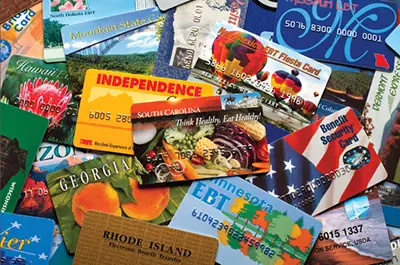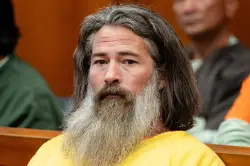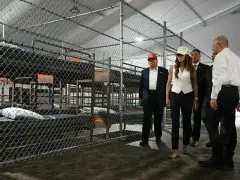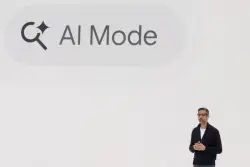Expert explains: How will SNAP cuts affect your community?

The Supplemental Nutrition Assistance Scheme also known as SNAP or food stamps provides money for low-income families to spend on food It s one of the largest anti-poverty programs in the country covering about million people President Donald Trump s Big Beautiful Bill makes the largest-ever cut to SNAP which is expected to leave millions with reduced benefits or none at all Related Food shelves facing greater pressure with the end of additional SNAP benefits Dr Hilary Seligman is a professor of medicine at the University of California San Francisco She spoke with KAXE reporter Megan Buffington this week to help explain the impact the cuts will have This conversation has been lightly edited for length and clarity I ve seen with a lot of the Medicaid cuts discussion that there s going to be an outsized impact on rural communities Is the same true for SNAP The same is true for SNAP One of the things that is vital about SNAP is that about of all the money that s put into people s SNAP benefits gets spent in local communities within a month and this is a really crucial driver of local economic activity which is especially fundamental in rural communities People are spending that money in local grocery stores That supports the cashiers in the grocery store the agricultural workers the truck drivers that bring the food into the grocery stores So there s a big local economic hit when SNAP benefits get reduced What will the impact of these cuts be to Indigenous communities Impacts in Indigenous communities I expect might be key for two reasons No is rates of food insecurity are extremely high in Indigenous communities and SNAP is one of the the greater part effective things that the United States has for reducing food insecurity rates People enrolled in SNAP are likely to have a reduction in their food insecurity of up to which is an enormous amount of improvement The second is that Indigenous communities are at very high jeopardy for obesity diabetes and complications of diabetes like high blood pressure and heart complaint And we know that when people are enrolled in SNAP they are likely to eat a healthier diet and a healthier diet helps protect people from these diseases And so there s a really significant possible impact on chronic diseases in Indigenous communities and in all communities as well The University of Minnesota Extension publicized it would be laying off county SNAP educators throughout the state who lead initiatives on healthy eating healthy lifestyles Can you speak to that tuition element of SNAP that will be going away Yes across the country for a long time the educators that you re referring to have been paid through something called the SNAP-Ed operation and the current iteration of the bill includes complete elimination of the SNAP-Ed campaign And so it s not surprising that there s going to be job reductions here Numerous of the obstructions to healthy dietary intake in the United States are related to a lack of affordable healthy food options and certain of the hindrances are related to development and so it s really significant that we have people in the neighborhood who can backing our families and understanding what foods to purchase with their individual medical requirements You mentioned the economic ripple of these cuts Can you elaborate on what that could look like We estimate that every in SNAP benefits generates more than in local economic activity and this is money that s going to your local grocery store that s going to the truck drivers and the farm workers in your society to the cashiers So we do expect that with reductions in SNAP benefit levels it is going to take an impact on local economic activity and it s likely the food system and your grocery stores in your group where you might see that impact This is vital in rural communities because rural communities are already struggling in a few cases to make sure that there s access to healthy foods available in a reasonable distance What types of people and communities are going to be hardest hit by these cuts One of the things that these SNAP cuts do is increase work requirements and that means that there s going to be a lot of paperwork required to prove that you re eligible for SNAP benefits because you are working a certain number of hours per month For numerous people who are working in the informal economic activity collecting this paperwork is going to be complicated If you spend your time taking care of an older adult or a disabled person it might be complex to prove those as working hours If you spend your time working in informal economies supporting your local district again it may be more intricate to prove those work hours and that s going to make it more challenging for people to access their benefits One of the things we ve heard especially from county governments is the cuts will create additional administrative burdens Can you speak a bit more to what that might look like Historically the federal ruling body has covered the entire cost of the SNAP benefit and about half of the cost of the administration of that SNAP benefit And with this new system a lot of those costs are going to be shifted onto the state But the states also in this moment are facing complex budget decisions And it s anticipated that the states are not going to be able to pick up all of the costs that the federal cabinet is stepping out of And that s going to leave people without the benefits that they have come to rely on So in the long term the losers are seemingly going to be the people who are receiving SNAP who are no longer going to be able to make ends meet Can you talk about the tie between SNAP and Medicaid cuts Both SNAP and Medicaid really sponsorship our lowest-income households in the United States with getting access to the food and the vitality care they need As a matter of fact the majority of SNAP beneficiaries are already enrolled in Medicaid and so the cuts to SNAP are hitting households at the exact same time as the cuts to Medicaid which just puts even more pressure on the household budget We know that when people lose access to SNAP benefits they are less likely to be healthy and now we re also saying to those families At the same time that you re less likely to be healthy you re going to have less access to wellbeing care And we re really worried that this is going to have a really challenging impact on the soundness of people living in low-income households Because not only can they not afford the food they need to be healthy but also when they do get sick they re going to have reduced access to healthcare care What tools are out there to backfill these cuts Traditionally we ve had a very robust charitable food system the system of food banks and food pantries and local communities that helped to catch people who were falling between the cracks who for one reason or another couldn t enroll in the SNAP benefits that they were entitled to One of the things that we re seeing right now is that that undertaking that system is also under a ton of strain and there have been massive budget reductions for food banks and food pantries as well So we re seeing this triple loss of food banks and food pantries SNAP and access to Medicaid So what this means is it s going to be various really really formidable years for our low-income households and this might have generational impacts on children s ability to maintain their robustness to develop in the way that they need to develop in order to become healthy working adults What is your pitch to those who might not be directly impacted by these cuts Why should they care When people don t have the healthy food that they need to eat they are less likely to show up in peak condition to be a good novice at school to be a good worker in the workplace and this affects all of us If we want our local communities to thrive we need everybody in them to be working at their best And that means access to healthy food people need and not having to spend a lot of their time every month worrying about where their next meal is going to come from We know from decades worth of research that healthy food access makes the United States stronger and healthier and these cuts really threaten the quota of the U S to get healthy food to all the people who need it This story originally appeared on KAXE The post Expert explains How will SNAP cuts affect your district appeared first on MinnPost


